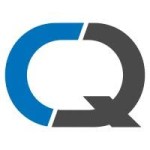The pharmaceutical industry operates within a highly regulated framework, requiring rigorous oversight of supplier quality and raw material traceability. Regulatory bodies such as the FDA, EMA, and WHO enforce strict guidelines to ensure product safety, efficacy, and compliance with Good Manufacturing Practices (GMP). To meet these requirements, companies must implement a robust pharmaceutical quality management system that enhances visibility across the supply chain and ensures supplier accountability.
A QMS System in Pharma provides the necessary tools for supplier evaluation, material traceability, and compliance monitoring. By leveraging an advanced quality management system, pharmaceutical companies can mitigate risks associated with substandard raw materials and regulatory non-compliance. This article explores how a qms solution streamlines supplier quality management and enhances raw material traceability.
Strengthening Supplier Quality Management in Pharmaceuticals
Establishing Supplier Qualification and Certification Processes
Supplier qualification is a critical component of pharmaceutical manufacturing. Companies must assess potential suppliers based on their adherence to GMP, quality control processes, and regulatory certifications. A pharmaceutical quality management system enables automated supplier assessments, ensuring that only pre-approved vendors provide raw materials. By maintaining a centralized database of supplier credentials, companies can streamline vendor qualification and ensure ongoing compliance.
Conducting Supplier Audits with Digital QMS Software
Routine supplier audits are essential for verifying compliance with industry standards. Manual audits often lead to documentation gaps and inefficiencies. A qms system in pharma automates the audit process by providing real-time tracking, automated audit scheduling, and digital recordkeeping. This ensures that all supplier evaluations are conducted systematically and that any non-conformances are identified and addressed promptly.
Ensuring Raw Material Traceability in Pharmaceutical Manufacturing
Real-Time Tracking of Raw Materials Across the Supply Chain
Pharmaceutical companies rely on multiple suppliers for active pharmaceutical ingredients (APIs), excipients, and packaging materials. Ensuring end-to-end traceability of these materials is vital for compliance and risk mitigation. A quality management system provides digital tracking capabilities that monitor raw material movement from procurement to production. This ensures that manufacturers can trace materials back to their source in the event of quality issues or recalls.
Managing Material Specifications and Compliance Standards
Raw materials used in drug production must meet strict regulatory standards. A qms system in pharma centralizes material specifications, making it easier for quality teams to verify compliance with pharmacopeial standards such as USP, EP, and JP. Automated workflows ensure that all raw materials undergo proper quality checks before entering the production process, reducing the risk of defective batches.
Improving Supplier Collaboration with QMS Software
Enhancing Communication Between Manufacturers and Suppliers
A pharmaceutical quality management system fosters seamless communication between manufacturers and suppliers. Digital platforms allow suppliers to submit quality documentation, certificates of analysis, and compliance reports in real time. This eliminates delays caused by manual documentation and ensures that manufacturers receive up-to-date supplier information.
Automating Corrective Actions for Supplier Non-Conformances
Supplier-related non-conformances can lead to production delays, regulatory issues, and financial losses. A qms system in pharma automates corrective and preventive action (CAPA) workflows, ensuring that quality teams can address supplier issues promptly. Digital CAPA management allows manufacturers to track supplier performance trends and implement long-term quality improvements.
Reducing Risks Associated with Contaminated or Substandard Raw Materials
Implementing Risk-Based Supplier Segmentation
Not all suppliers pose the same level of risk. A quality management system enables risk-based supplier segmentation by categorizing vendors based on their quality history, compliance status, and audit results. This approach allows pharmaceutical companies to focus their quality assurance efforts on high-risk suppliers, ensuring stricter monitoring and control.
Enabling Rapid Recall Management Through Digital Traceability
In cases where raw material contamination is detected, rapid action is required to prevent unsafe products from reaching consumers. A qms system in pharma provides full material traceability, allowing manufacturers to identify affected batches and execute targeted recalls. Digital traceability significantly reduces response times and minimizes the impact of product recalls.
Enhancing Compliance with Global Regulatory Requirements
Aligning Supplier Quality Management with GMP and ISO Standards
Pharmaceutical manufacturers must comply with international quality standards such as GMP, ISO 9001, and ICH Q10. A Pharmaceutical Quality Management System integrates regulatory requirements into supplier quality workflows, ensuring that all materials and processes meet industry expectations. Automated compliance tracking helps manufacturers stay audit-ready and avoid regulatory penalties.
Generating Comprehensive Reports for Regulatory Submissions
Regulatory agencies require detailed documentation on supplier quality, raw material traceability, and compliance actions. A qms system in pharma generates real-time reports that compile all necessary quality data, making it easier for companies to submit regulatory filings. Automated report generation ensures accuracy and eliminates manual documentation errors.
Driving Continuous Improvement in Supplier Quality and Material Traceability
Leveraging Data Analytics for Supplier Performance Monitoring
Data-driven decision-making is key to optimizing supplier quality. A Quality Management System utilizes analytics to track supplier performance metrics such as defect rates, audit scores, and compliance trends. Manufacturers can use these insights to implement supplier development programs and drive continuous quality improvement.
Standardizing Quality Processes Across Global Supplier Networks
Pharmaceutical companies with multiple suppliers across different regions must ensure consistency in quality standards. A qms system in pharma standardizes quality processes across global supplier networks, ensuring that all vendors follow the same compliance protocols. This eliminates variability in raw material quality and enhances overall product consistency.
Why ComplianceQuest is Essential for Pharmaceutical Manufacturers in 2025
In 2025, pharmaceutical manufacturers must prioritize supplier quality and raw material traceability to maintain regulatory compliance and product safety. A pharmaceutical quality management system provides the digital infrastructure necessary to manage supplier audits, track raw materials, and mitigate supply chain risks. ComplianceQuest offers a qms system in pharma that integrates advanced analytics, real-time tracking, and automated compliance workflows to streamline supplier quality management. By leveraging ComplianceQuest, pharmaceutical companies can enhance supply chain transparency, reduce regulatory risks, and achieve long-term operational excellence.





Comments